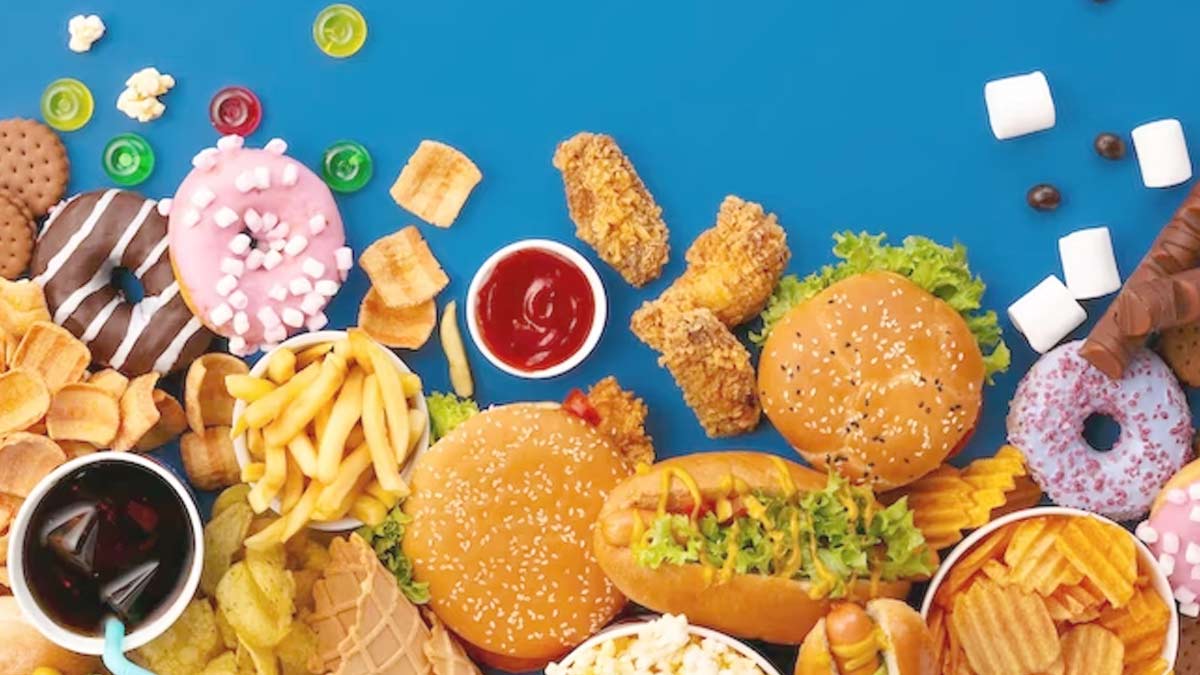
In today's fast-paced world, junk food has become a convenient and often tempting option for most of us. While its immediate effects on our taste buds and satiety are undeniable, research has shown that consuming junk food can have significant consequences on our overall health, including the quality of our sleep.
Table of Content:-
Disrupted Circadian Rhythm
Studies have suggested that consuming a diet high in junk food can disrupt our internal body clock, known as the circadian rhythm. These foods, typically high in added sugars, unhealthy fats, and refined carbohydrates, can affect the natural sleep-wake cycle, leading to difficulty falling asleep and maintaining a consistent sleep pattern.
Increased Risk of Insomnia
Research has indicated that a diet rich in junk food can increase the risk of developing insomnia. The excessive intake of sugar and caffeine found in many processed snacks and beverages can stimulate the nervous system, making it harder to fall asleep and negatively impacting the overall duration and quality of sleep.
Also read: Replace Your Favourite Junk Foods With These 7 Healthy Alternatives
Poor Sleep Quality
Junk food consumption has been linked to poor sleep quality, characterised by reduced deep sleep and an increase in fragmented and restless sleep. This can be attributed to the high glycemic index of many processed foods, causing blood sugar spikes and subsequent crashes, leading to sleep disturbances and frequent awakenings during the night.

Increased Risk of Sleep Apnoea
Study has associated the consumption of junk food with an increased risk of developing sleep apnoea. Junk food, especially those high in unhealthy fats, can contribute to weight gain and obesity, which are significant risk factors for sleep apnea—a sleep disorder characterised by interrupted breathing patterns during sleep.

Impaired Melatonin Production
Melatonin, often referred to as the "sleep hormone," plays a crucial role in regulating our sleep-wake cycle. Research published in Advances In Nutrition, has shown that consuming an unhealthy diet can impair melatonin production, making it harder to fall asleep and disrupting the overall sleep quality.
Nighttime Acid Reflux
Junk food, particularly foods high in fat and spice, can trigger acid reflux or heartburn during sleep. This condition, known as gastroesophageal reflux disease (GERD), can cause discomfort, leading to frequent awakenings and disrupted sleep. Additionally, eating large, heavy meals close to bedtime can exacerbate this issue.
Increased Risk of Restless Legs Syndrome
Restless Legs Syndrome (RLS) is a condition characterised by an uncontrollable urge to move the legs, often accompanied by uncomfortable sensations. Studies have indicated that consuming excessive amounts of junk food, particularly those high in sugar and caffeine, can increase the risk of developing RLS, leading to restless and disturbed sleep.
Also read: Can Consuming Junk Food Negatively Impact Quality Of Deep Sleep? Research Finds
Bottomline
The impact of junk food on our overall health extends beyond mere physical well-being. From disrupting our circadian rhythm and impairing melatonin production to increasing the risk of sleep disorders such as insomnia, sleep apnea, and restless legs syndrome, junk food consumption has far-reaching consequences.
By recognising these detrimental effects, we can make informed choices about our dietary habits, prioritising wholesome and nutritious options that support restful and rejuvenating sleep, ultimately leading to a healthier and more fulfilling lifestyle.
Also watch this video
How we keep this article up to date:
We work with experts and keep a close eye on the latest in health and wellness. Whenever there is a new research or helpful information, we update our articles with accurate and useful advice.
Current Version